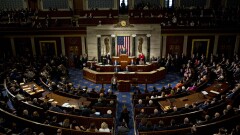It has not been a big year for enactment of tax legislation so far. While a number of tax bills have been working their way through Congress, including IRS reform legislation, technical corrections to the Tax Cuts and Jobs Act, extension of tax provisions that expired at the end of 2017, retirement reform, and disaster relief, none have made it through Congress at this point. The delays may prove fatal to some of this legislation. The following is a wrap-up of current status and the prospects going forward.
A mid-year tax legislation update
June 17, 2019 9:02 AM






